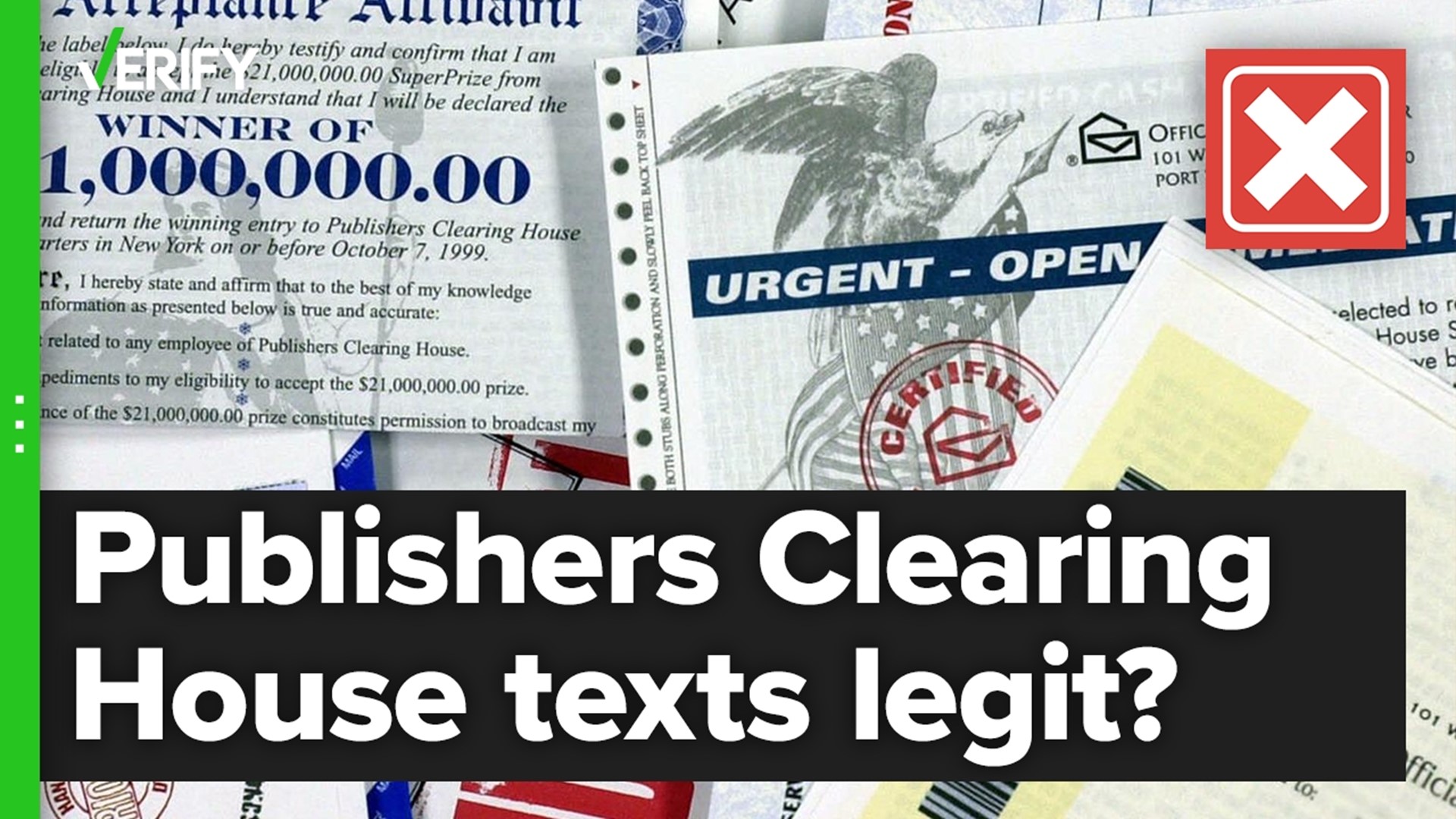Publishers Clearing House has become famous over the decades for its many sweepstakes in which company employees personally deliver massive checks to grand prize winners, as depicted in its familiar TV commercials.
But several viewers reached out with concerns that texts, emails or phone calls purportedly from Publishers Clearing House were scams. According to the viewers, the messages asked the person to send money to someone else to receive their prize.
THE QUESTION
Are messages asking for cash in exchange for Publishers Clearing House prizes scams?
THE SOURCES
THE ANSWER
Yes, if a message asks for cash in exchange for a Publisher Clearing House prize, then it’s a scam from an imposter.
WHAT WE FOUND
Publishers Clearing House (PCH) is a marketing company that has run monetary sweepstakes for more than 50 years.
According to PCH, it gives away between $3 million to $13 million each year, with individual prizes ranging from $1 Amazon gift cards to $10 million grand prizes.
The United States Postal Inspection Service (USPIS) says PCH is a legitimate sweepstakes, but there are many scams that use the company’s name and logo in an attempt to take people’s money.
“If you are ever contacted by someone claiming to represent PCH, or claiming to be one of our employees, and asked to send or wire money (for any reason whatsoever, including taxes); or send a pre-paid gift card or Green Dot Moneypak card in order to claim a sweepstakes prize — DON’T! It’s a SCAM,” PCH warns on its fraud protection page. “If you are sent a check, told it’s a partial prize award, and asked to cash it and send a portion back to claim the full prize award, DON’T. The check is fake, but the SCAM is real!”
PCH says scammers will use the name of real employees to make their deception more believable. It says the company would never ask a person to pay to receive their cash prize, and it does not send emails requesting personal banking or financial information in connection with a prize. The Better Business Bureau warns that these scammers may try to get the victim to pay multiple times.
An important piece of PCH’s brand is that it surprises winners of large prizes by sending its “Prize Patrol” to meet the winners in person. When PCH does this, it does not give advance notice by phone or email.
PCH says it may notify winners of $10,000 or less by overnight express mail with UPS, FedEx or the postal service, and “occasionally” by email. But PCH stresses that “major prize award and SuperPrize winners are not notified via email.”
“You may be contacted by mail, but PCH never calls in advance,” USPIS says. “If you receive a call from someone claiming to be from Publishers Clearing House — just hang up! You haven’t heard from the real PCH.”
The Federal Trade Commission (FTC) says scammers typically ask victims to send money by Western Union or MoneyGram, or through reloadable debit cards or gift cards because it’s nearly impossible to trace the money this way.
Even when it comes to other prizes, sweepstakes and lotteries, the FTC says to never send money to claim a prize. “If you have to pay, it’s a scam,” the FTC says.
“Anyone who says, ‘You’ve won. Now pay us,’ is always [a] scammer. Period,” the FTC said in another warning.
More from VERIFY: 5 tips to spot scam text messages

